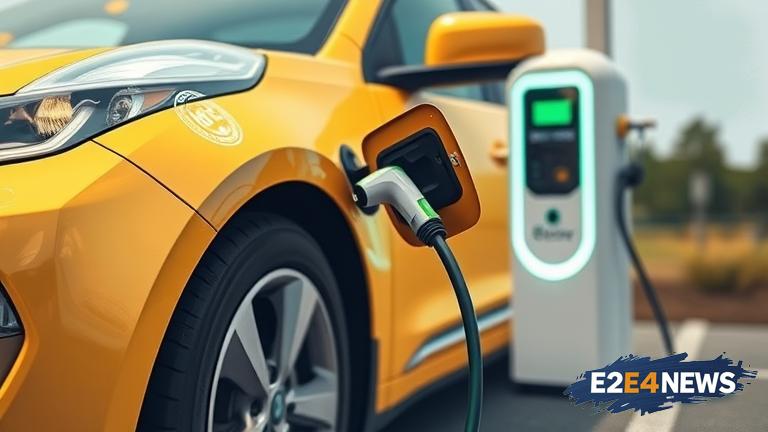The federal tax credit for electric vehicles, which has been a significant incentive for many Americans to switch to eco-friendly cars, is set to expire soon. This credit, which can be up to $7,500, has been instrumental in promoting the adoption of electric vehicles in the US. However, with the current administration’s focus on reducing government spending, the future of this credit is uncertain. The tax credit was introduced in 2008 as part of the American Recovery and Reinvestment Act, with the goal of encouraging the development and purchase of electric vehicles. Since then, it has been extended several times, but its expiration date is now looming. The credit is available to individuals and businesses that purchase electric vehicles, and it can be claimed on their tax returns. The amount of the credit depends on the battery size and type of vehicle, with larger batteries qualifying for the full $7,500 credit. Many electric vehicle manufacturers, including Tesla, General Motors, and Nissan, have been relying on this credit to make their vehicles more competitive in the market. However, some critics argue that the credit is no longer needed, as electric vehicles have become more affordable and popular in recent years. Others argue that the credit is essential to continue promoting the adoption of electric vehicles, which are still more expensive than their gasoline-powered counterparts. The expiration of the tax credit could have significant implications for the electric vehicle industry, including higher prices for consumers and reduced sales for manufacturers. It could also impact the environment, as electric vehicles produce zero tailpipe emissions and are a crucial part of reducing greenhouse gas emissions. The US is not the only country that offers incentives for electric vehicles, with many other nations providing similar credits and subsidies. However, the US has been a leader in promoting electric vehicle adoption, and the expiration of the tax credit could put it behind other countries. Some states, such as California and New York, have their own incentives for electric vehicles, but these are not enough to offset the loss of the federal tax credit. The electric vehicle industry is urging lawmakers to extend the tax credit, arguing that it is essential to continue promoting the adoption of electric vehicles. However, with the current political climate, it is unclear whether the credit will be extended. The expiration of the tax credit could also have implications for the economy, as the electric vehicle industry is a significant employer and contributor to GDP. Many jobs could be lost if the industry declines, and the economy could suffer as a result. In conclusion, the federal tax credit for electric vehicles is set to expire, and its future is uncertain. The credit has been instrumental in promoting the adoption of electric vehicles, and its expiration could have significant implications for the industry, the environment, and the economy. Lawmakers must consider the importance of this credit and take action to extend it, or risk putting the US behind other countries in the transition to a low-carbon economy.





